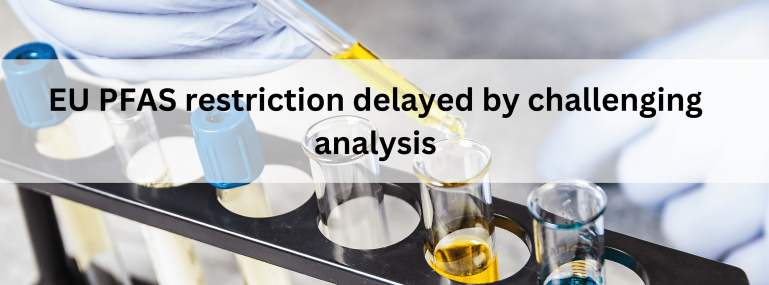PFAS limits have been delayed until 2025 by the EU. As a result of the proposed ban, Germany, Denmark, the Netherlands, Sweden, and Norway would virtually be able to limit all PFAS. The announcement was made in February 2023. Given the long shelf lives and toxicity of some PFAS, also known as “forever chemicals,” the proposed prohibition is appropriate.
It is widely recognized that some PFASs are toxic, including the recent announcement of a phase-out of PFASs made by DuPont, Corteva and Chemours, as well as a settlement from 3M for $10.3 billion. As a result, these chemicals are also widely used. This includes various CO2 reduction technologies that support other EU legislation. Other words, the debate about limiting PFASs should not be used as a method of treating the human body, since there may be no substitutes for compounds used in decarbonization. Safety is the topic of the discussion.
It is likely that a comprehensive ban on PFAS would affect science-based targets (SBTs) and planned legislation as well as decarbonization technologies that are supported by these targets. PFAS are used in batteries for electric cars, heat pumps, hydrogen fuel generation and transportation, wind turbines, and other decarbonization technologies. This restriction would affect the EU Green Deal, the Repower EU plan, and the “Fit for 55 by 2030” bundle of regulations.
PFAS producers and users are being lobbied by the European Chemical Industry Council (CEFIC), as the EU considers its stance on PFAS in advance of a recommendation (likely to be published in 2024) from the European Chemicals Agency (ECHA) and the European Council (EC).
It will be possible to choose the level of PFAS restriction, including any specific exempted or permitted uses, by 2025. It would result in an effective date of 2026 and an 18-month transition period in the middle of 2027 that might affect manufacturers and products.
ComplianceXL continues to monitor these new limits and laws. ComplianceXL can determine if you are using PFAS in your products at the moment. By identifying potential threats from harmful substances such as PFAS, you can be proactive in managing your compliance. Adding value to your business and your clients while gaining an edge over your competitors is possible with reactive policies. Get in touch with us today for more information!





